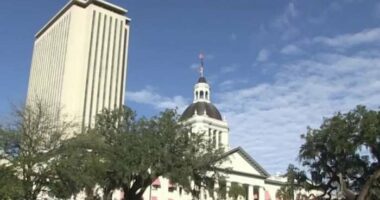Share this @internewscast.com

In Nashville, Tennessee, a longstanding interpretation of U.S. citizenship is under scrutiny. For over 100 years, being born on American soil has automatically granted citizenship, a practice Tennessee Attorney General Jonathan Skrimetti challenges.
Skrimetti argues that this interpretation of the 14th Amendment diverges significantly from what the nation’s founders originally intended.
“If you look at those who supported and ratified the 14th Amendment, they would likely be astonished at the broad application of the citizenship clause today,” Skrimetti remarked in an exclusive interview with News 2. “They would probably find it odd that someone gains American citizenship simply by being born here.”
The amicus brief presented by Skrimetti contends that the architects of the post-Civil War amendment did not foresee citizenship being granted to individuals merely passing through the country. Instead, he suggests that the framers intended citizenship for those who had a genuine allegiance to the U.S. and had established their lives within its territory.
“The 14th Amendment speaks to residing in a state,” Skrimetti explained. “If someone is intentionally passing through just to give birth and then leave, that scenario doesn’t align with the intent of the amendment.”
Emphasizing the legal rather than political nature of this effort, Skrimetti describes it as an attempt to address a constitutional question that has lingered unresolved for more than a century.
“It’s plainly a legal issue,” he said. “It’s talking about what the words in the Constitution mean.”
He points to the United States v. Wong Kim Ark, a Supreme Court case decided when the United States had far fewer immigration laws. The Chinese immigrant at the center of that case had parents lawfully living in San Francisco. Today, Skrmetti said, the Court must grapple with a reality that looks different.
“Wong Kim Ark does not say anything about people who are here illegally,” he said. “The family in Wong Kim Ark was lawfully present in the United States. Immigration laws have changed a lot since then… We need clarity from the Court.”
The Supreme Court has not yet agreed to hear the case on its merits, but Skrmetti expects movement soon, possibly a hearing within months and a decision by summer.
“The question really is what limits does the language of the law actually impose?” he said.
For Skrmetti, that question and the Court’s eventual answer could help decide how the next generation defines what it means to be an American.










